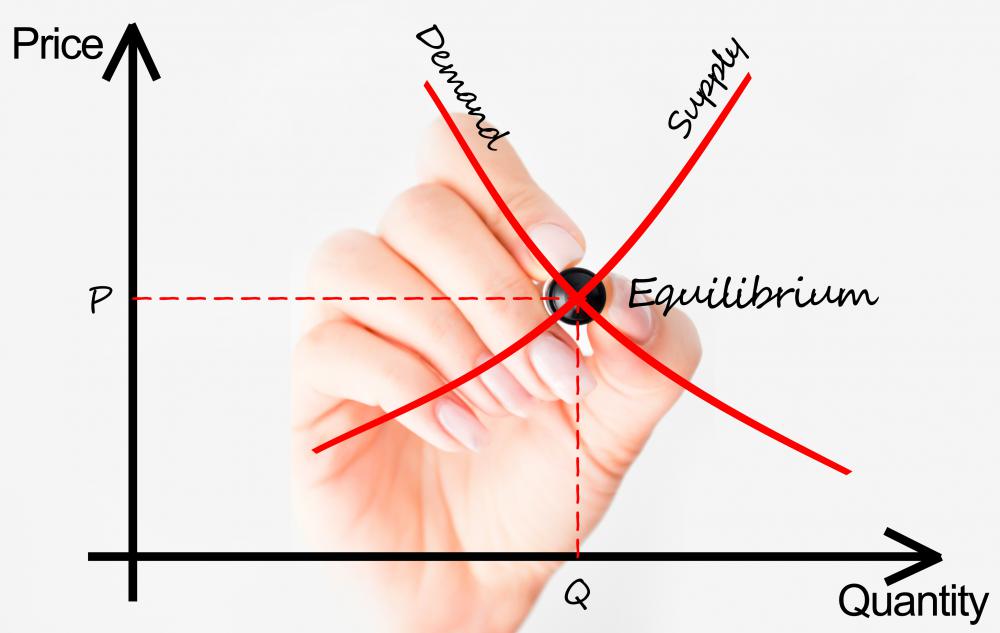At WiseGEEK, we're committed to delivering accurate, trustworthy information. Our expert-authored content is rigorously fact-checked and sourced from credible authorities. Discover how we uphold the highest standards in providing you with reliable knowledge.
What is a Price Mechanism?
The price mechanism is an economic concept that refers to the way that the price of a product is dependent upon the supply and demand for that product. First postulated by the economist Adam Smith, the concept relies on the workings of a free market system for its existence. Just as the price of a product will react to changes in supply and demand, so too will supply and demand respond to a change in price. Thus, the price mechanism helps to achieve a kind of balance between all of the elements in an economy.
One of the main characteristics of a free market economy is how the decisions made by millions upon millions of consumers will reflect upon the way that goods are produced and those goods are priced. None of those seemingly disparate elements occur in a vacuum. Instead, they all depend upon each other and react to movements up and down the curve of supply and demand. Thus, the price mechanism reflects the action and reaction of the entire free market.

For example, imagine that there is a sudden demand for light bulbs among the members of society. As the demand increases, the makers of the light bulbs will be able to raise the price of the light bulbs to reflect that demand. In turn, the company that makes the light bulbs will devote more of its production efforts to light bulbs, thus increasing the supply to meet the demand.

With this example, the price mechanism has resulted in the initial rise of prices for the light bulbs. Since the initial demand for the light bulbs has been sated, and the increased production has resulted in more light bulbs being produced, the mechanism begins to shift back the other way. The price increase and the increased supply will result in less demand for the light bulbs. Once that occurs, the prices will drop back down, the companies will once again decrease their efforts to produce the light bulbs, and the cycle will revert back to somewhere near the original starting point.
If demand for a certain product rises in inverse proportion to the supply, the price mechanism acts as a sort of rationing agent for that product. The price will rise to keep demand low until supply levels can catch up. Consequently, the prices can come back down again.
AS FEATURED ON:
AS FEATURED ON:












Discussion Comments
@Markerrag -- You've just laid out a scenario which is clearly prohibited by federal law. When businesses are encouraged to compete, the notion is that price mechanisms work and consumers get the best prices.
So let's take a look at your doctors. The way things should work is that each doctor decided the costs of procedures independently and moves their prices in response to competitors in hopes of getting more business. In that scenario, the price mechanism works as it should and prices settle in at "natural" levels.
Do things always work out that way? I don't know, but they should work that way.
That is great in theory, but how well does it work out in the real world? What if a bunch of doctors in an area get together and agree to standard rates for various medical procedures? There is an example of the price mechanism not working because it is not allowed to do so.
Post your comments